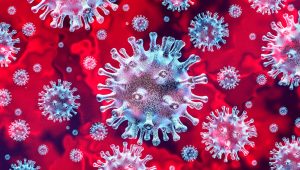Myanmar’s opposition National Unity Government (NUG) has announced the formation of a COVID-19 Task Force in order to help control the virus and bolster its bid for international recognition.
In a statement yesterday, the NUG said that the task force, which will be led by Dr. Cynthia Maung, chair of the NUG’s Ethnic Health Committee, and Union Minister of Health Dr. Zaw Wai Soe, who headed Myanmar’s COVID-19 taskforce before February’s military coup, will work in collaboration with ethnic health organizations “to prevent, mitigate and control the spread of COVID-19 pandemic in Myanmar.”
In addition to “issuing directives relating to COVID-19 prevention,” the new task force will also help coordinate “cooperation with international associations in order to procure, not only COVID-19 vaccines but also prerequisite assistance and equipment needed for vaccination programs.”
The NUG was formed in April by opponents of the military junta that seized power on February 1, to function as a sort of internal government-in-exile and compete with the junta for international recognition.
According to the statement, the NUG’s COVID-19 Task Force will aim to hold “discussions and consultations” with organizations including the United Nations, international non-government organizations, and foreign governments, including its Southeast Asian neighbors and those further afield.
The announcement comes in the midst of a terrifying wave of COVID-19 infections in Myanmar. Yesterday, the junta’s health ministry reported 5,506 new COVID-19 infections, bringing the country’s total to more than a quarter of a million, in addition to 6,133 deaths.
These figures are almost certainly underestimates, given the collapse of testing and contact tracing since the military coup tipped the country into turmoil six months ago. Vaccination rates have also plummeted, with thousands of health workers walking off the job as an act of civil disobedience, and many people refusing to receive what few vaccines are on offer from military medics. Zaw Wai Soe told Radio Free Asia this week that without timely intervention, “it is possible that more than 300,000 or up to 400,000 lives could be lost.”
With the new Delta variant scything across the country, and hospitals facing a severe shortage of oxygen supplies, the Special Advisory Council on Myanmar (SAC-M) today called for a “massive U.N.-mandated humanitarian response” to address the crisis. Said Chris Sidoti, a former member of the U.N. Fact-Finding Mission on Myanmar, “The situation has become a humanitarian disaster of such proportions that an international presence of health and medical personnel has become critical.”
While the NUG’s move is natural given the desperate COVID-19 situation in the country, it also clearly has an important political dimension. Given the military’s “incompetence, inaction, and inhuman conduct” in responding to the pandemic, as Zoya Phan of Burma Campaign UK put it today, the NUG, for all its limitations, stands a good chance at being able to prove itself more effective at delivering basic services. This would help bolster its attempts at being recognized as Myanmar’s legitimate government. The goal seems to be that if the NUG talks like a government and acts like a government, foreign capitals might formally recognize it as such.
However, even as many foreign governments have condemned the turn of events in Myanmar, none has so far recognized the NUG. As I argued earlier this week, this reflects the fact that the military junta, however contested its control, remains in control of the central state apparatus. No governments, at least so far, seem willing to forfeit their diplomatic channel to the military government, the likely result of any formal recognition of the NUG.
Still, the funneling of COVID-19 aid and vaccines to the NUG, perhaps via the border crossings controlled by aligned ethnic armed organizations in Karen State on the border with Thailand, could be one way for Western nations to support the anti-coup opposition short of formally recognizing it. This could also appeal to foreign governments who are seeking to offer humanitarian and COVID-19 aid to Myanmar, but are reluctant to do so in a manner that confers legitimacy on the ruling junta.
Of course, such a plan hinges on the cooperation of the Thai government, whose Prime Minister Prayut Chan-o-cha came to power in a coup of his own in 2014 and has bent over backwards to avoid condemning the February coup. Whether Bangkok would permit the opening of a politically sensitive coronavirus aid pipeline from its territory into rebel-held regions of eastern Myanmar thus remains unlikely – but it might be Myanmar’s best chance of avoiding a COVID-19 disaster.

































